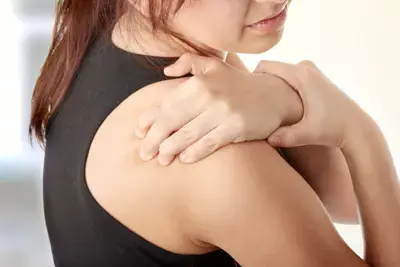- Home
- Medical news & Guidelines
- Anesthesiology
- Cardiology and CTVS
- Critical Care
- Dentistry
- Dermatology
- Diabetes and Endocrinology
- ENT
- Gastroenterology
- Medicine
- Nephrology
- Neurology
- Obstretics-Gynaecology
- Oncology
- Ophthalmology
- Orthopaedics
- Pediatrics-Neonatology
- Psychiatry
- Pulmonology
- Radiology
- Surgery
- Urology
- Laboratory Medicine
- Diet
- Nursing
- Paramedical
- Physiotherapy
- Health news
- Fact Check
- Bone Health Fact Check
- Brain Health Fact Check
- Cancer Related Fact Check
- Child Care Fact Check
- Dental and oral health fact check
- Diabetes and metabolic health fact check
- Diet and Nutrition Fact Check
- Eye and ENT Care Fact Check
- Fitness fact check
- Gut health fact check
- Heart health fact check
- Kidney health fact check
- Medical education fact check
- Men's health fact check
- Respiratory fact check
- Skin and hair care fact check
- Vaccine and Immunization fact check
- Women's health fact check
- AYUSH
- State News
- Andaman and Nicobar Islands
- Andhra Pradesh
- Arunachal Pradesh
- Assam
- Bihar
- Chandigarh
- Chattisgarh
- Dadra and Nagar Haveli
- Daman and Diu
- Delhi
- Goa
- Gujarat
- Haryana
- Himachal Pradesh
- Jammu & Kashmir
- Jharkhand
- Karnataka
- Kerala
- Ladakh
- Lakshadweep
- Madhya Pradesh
- Maharashtra
- Manipur
- Meghalaya
- Mizoram
- Nagaland
- Odisha
- Puducherry
- Punjab
- Rajasthan
- Sikkim
- Tamil Nadu
- Telangana
- Tripura
- Uttar Pradesh
- Uttrakhand
- West Bengal
- Medical Education
- Industry
Hybrid graft useful in superior capsular reconstruction in patients with irreparable rotator cuff tears

Irreparable massive rotator cuff tear (RCT) is a challenging pathology in shoulder surgery, and up to 30% of RCTs are reported as irreparable due to the massive tear size and severe muscle fatty infiltration.
Jong Pil Yoon et al conducted a study to evaluate the clinical and radiological outcomes of arthroscopic superior capsular reconstruction (SCR) using hybrid grafts composed of tensor fascia lata autografts and human dermal allografts.
This study included 30 patients with chronic irreparable posterosuperior rotator cuff tears (RCTs) who underwent arthroscopic SCR using a hybrid graft composed of tensor fascia lata autograft and human dermal allograft. Clinical outcomes were evaluated using the pain visual analogue scale score, shoulder range of motion, American Shoulder and Elbow Surgeons score, constant score, University of California–Los Angeles score, and simple shoulder test score preoperatively and at least 2 years after surgery. Radiographic analysis included the Hamada classification grade, acromiohumeral distance (AHD), and graft integrity at 2 years after surgery.
Key findings of the study were:
• The mean graft thickness was 14.6±3.5 mm (11–17 mm).
• All patients exhibited significant clinical improvement in all functional outcome measurements, except external rotation (all P < 0.05).
• The number of patients who exhibited pseudoparalysis decreased from 7 (23.3%) to 2 (6.7%) postoperatively.
• Complications were not observed.
• Radiologically, the mean postoperative AHD increased significantly from 6.9±1.6 cm to 8.8±2.1 cm at 2 years postoperatively (P < 0.001).
• Twenty five out of the 30 (83.3%) patients showed successful graft healing, and all healing failures occurred on the humeral side.
• The differences between the healed-graft and failed-graft groups were significantly lower graft thickness (P=0.001) and smaller AHD (P < 0.001) in the failed-graft group.
• Every functional outcome scores were not statistically different between healed-graft and failed-graft groups.
The authors concluded that – “An arthroscopic SCR technique using a hybrid graft consisting of a tensor fascia lata autograft and human dermal allograft showed satisfactory clinical outcomes in patients with irreparable RCTs.”
Level of evidence - IV
Further reading:
Superior capsular reconstruction using hybrid graft for irreparable massive rotator cuff tear, Jong Pil Yoon, Dong Hyun Kim et al, Knee Surgery, Sports Traumatology, Arthroscopy (2023) 31:2635–2645, https://doi.org/10.1007/s00167-023-07321-2
MBBS, Dip. Ortho, DNB ortho, MNAMS
Dr Supreeth D R (MBBS, Dip. Ortho, DNB ortho, MNAMS) is a practicing orthopedician with interest in medical research and publishing articles. He completed MBBS from mysore medical college, dip ortho from Trivandrum medical college and sec. DNB from Manipal Hospital, Bengaluru. He has expirence of 7years in the field of orthopedics. He has presented scientific papers & posters in various state, national and international conferences. His interest in writing articles lead the way to join medical dialogues. He can be contacted at editorial@medicaldialogues.in.
Dr Kamal Kant Kohli-MBBS, DTCD- a chest specialist with more than 30 years of practice and a flair for writing clinical articles, Dr Kamal Kant Kohli joined Medical Dialogues as a Chief Editor of Medical News. Besides writing articles, as an editor, he proofreads and verifies all the medical content published on Medical Dialogues including those coming from journals, studies,medical conferences,guidelines etc. Email: drkohli@medicaldialogues.in. Contact no. 011-43720751


